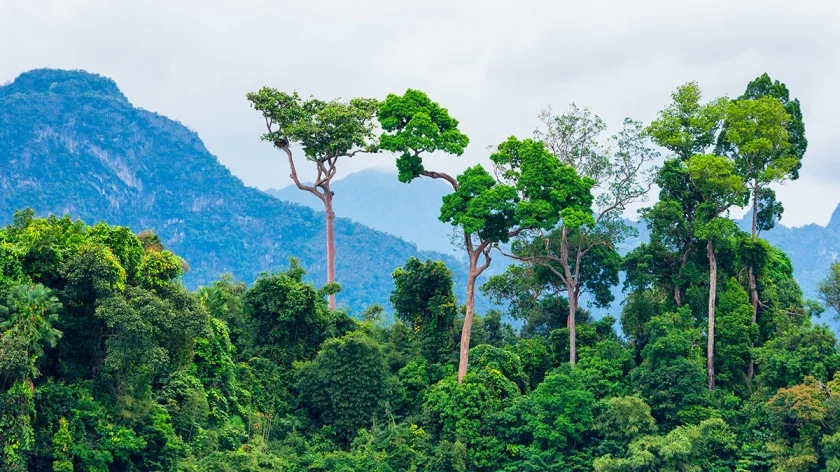- JOHN’S, Antigua, Sept. 11, 2014, CNS – In the biodiesel production industry, Elliot Lincoln is only producing “a drop in the ocean” but he is very optimistic that his small production company has the three dimensions of sustainability and could therefore make a big difference, not only in Antigua and Barbuda but also in the Eastern Caribbean.
“There is an economic benefit; there is a social benefit; and there is an environmental benefit,” he told CNS, as he explained the process of producing biofuel through the chemical reactions – transesterification and esterification.
Lincoln became interested in “clean tech” about 15 years ago while working for two companies, one American and one German, with offices in the United Kingdom. In both companies he did a lot of work in emissions control.
“I remember at the time seeing the process and thinking these guys are taking vegetable oil and through a chemical process turning it into fuel,” he said.
“It immediately sparked my imagination and I thought, in the Caribbean, this kind of thing would be excellent because I know we import all of our fuel to generate power.”
The twin-island state of Antigua and Barbuda consumes between 10-12 million gallons of diesel annually and Lincoln said that Themba Biofueld, which he launched in 2011, makes a couple hundred thousands of gallons annually.
“My business fits under the ‘clean tech’ umbrella because I’m producing a fuel that would enable us to cut back on the amount of fuel we import,” Lincoln, an Antiguan national who grew up in England, explained.
Antigua has a huge hospitality sector and Lincoln’s company currently collects between 4000-5000 gallons of used vegetable oil each month from hotels and restaurants across the country.
“The used oil coming out of this sector was going to Cooks (Landfill) and we had no facility to process it so it used to be buried,” he explained.
“They started having flash fires (because) the dump is getting to maturity so they are getting a lot of methane gas coming off and igniting.”
Pointing to the positive environmental impact of his company, Lincoln said: “anything that we do to stop people dumping waste oil which leaches into our ground water resources it’s a no brainer.
“Once the fuel is made, when you burn that fuel vs. regular petrol diesel, it’s about an 86 percent reduction in carbon dioxide in the atmosphere,” he described.
Clean energy and climate technology ventures like the one developed by Lincoln, got a major boost recently with the launch of a new World Bank–supported business hub. The Caribbean Climate Innovation Center (CCIC), the first of its kind in the region, will help reduce the significant threats posed by climate change through the creation of new green businesses.
“The CCIC helps companies and entrepreneurs in the green growth fields of renewable energy, energy efficiency, sustainable agriculture and water supply,” Jonathan Coony, Programme Coordinator of the World Bank’s infoDev’s Climate Technology Programme said.
“The CCIC works with governments to ensure proper policies are in place so that local companies can succeed in these sectors.”
Climate change can have a serious impact on the Caribbean. A recent World Bank study highlights how an estimated 4°C increase in global temperatures would have disastrous consequences, including increased frequency and intensity of storms, coastal erosion, and decline of fresh water resources. Additional research estimated that the cost for the Caribbean could be up to US$11 billion annually by 2025.
To address the economic impact of climate change in the region, the CCIC will help local companies – working in solar energy, energy efficiency, water management, resource efficiency and agribusiness – become successful ‘green’ ventures through financing, training, mentorship and other services.
“The CCIC helps companies developing new technologies and business models to respond to and adapt to climate change,” Coony said.
“This will make the region more resilient in responding to climate change. New products enhancing agriculture that can deal with climate variability, for example, or water treatment and supply technologies that can help countries address changing rainfall patterns.”
The World Bank said numerous domestic natural resources such as solar, wind, geothermal and biomass can be tapped to move the region away from fossil fuels.
By supporting local climate technology companies that make use of these natural resources, the CCIC is expected to cut 20,882 metric tons in Green House Gas emissions in the first six years of operation – which is equivalent to the exhaust emissions from 4,500 passenger cars per year.
“The new CCIC will help turn climate challenges into economic opportunities,” said Sophie Sirtaine, World Bank Country Director for the Caribbean.
“Companies in the Caribbean have the skills and experience to innovate and find environmentally sound and profitable climate solutions the region needs. The CCIC will work with them to make this happen.”
Lincoln said that even though he is only producing “a tiny drop”, it equates to approximately 86 percent carbon reduction, adding that once you start to scale this up it becomes a very significant contribution.
“We are at a point now where we have proven we can do this. The next step is to scale up. I don’t think any of these businesses really make sense if you think in terms of national or single country. For this to be viable and sustainable long term it has to be at least a sub-regional operation.”
The biodiesel being produced by Lincoln is widely used in Antigua by the public transportation industry, distributors and wholesalers, mariners, owners of standby generators, just to name a few.
But he is unable to supply the state-owned Antigua Public Utilities Authority (APUA), noting the amount he is able make in one year they are burning that amount in a day or two.
“We believe biodiesel could play an important role in the energy landscape of the Caribbean. So far, we have proven we can take the worst type of oil and in about four days, convert the used cooking oil to a highly refined biofuel which compairs visually and chemically with the diesel you would buy at the pump,” Lincoln said.
“We aim to replace 10 percent of imported diesel fuel with biodiesel and create more than a hundred jobs.”
As he looks to the future, Lincoln said “there are opportunities to develop alternative raw material, basically to grow our own oil and we are currently looking at technologies that are out there, agricultural and otherwise for growing new oil.”
CNS/db/2014



